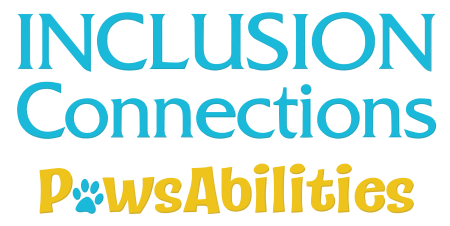Please share this article with your family and friends!
A ‘Counsel’ of Peers
The nonprofit Inclusion Connections pairs teens with their developmentally disabled peers.

Inviting a friend with developmental disabilities to go bowling, shopping or out to eat is nothing new to Jordan Megles, an 18-year-old who just graduated from Olathe South High School.
With a mother who is a parent educator for those with special-needs children and a 15-year-old brother with a behavioral disorder, Megles grew up exposed to the idea that these kids just want to be treated like everybody else.
So when she learned about Inclusion Connections, a not-for-profit based in Olathe that formed two years ago, she jumped at the chance to volunteer there.
The organization’s mission is to create opportunities for those ages 13 to 25 with developmental disabilities to engage with their community and gain access to meaningful employment and better options for independent living. It embraces the notion that society has moved from the concept of sheltered workshops toward customized employment in the real workforce for people with disabilities.
“It is the most incredible organization I have worked with so far,” says Megles, who has volunteered at Tomahawk Elementary in Olathe for the last eight years and at Inclusion Connections for the last year. “Their goal is to include everyone and to see how special they really are. That makes a world of difference in these kids’ lives. It’s absolutely breathtaking to see the difference in them after interacting with kids their own age and not being babied.”
Debbie Horn founded Inclusion Connections, which has a total staff of three people, because of a personal and profound need. Her son, Matthew, 18, has Down syndrome and also recently graduated from Olathe South High School. Although he has been in the same classrooms with his peers since he started kindergarten, he was disconnected when it came to after-school friendships and summer activities.
“When he was in elementary school, I would call the moms and have the friends over,” Horn explains. “But now I can’t call a high school boy and say, ‘Would you come over?’ So Inclusion Connections is a way that I can get to the kids in a comfortable way for me, knowing that if it’s a problem for Matthew it’s a problem for all the Matthews in the school system.”
Inclusion Connections has recruited more than 200 middle- and high school-aged students called volunteer “peer mentors” who are trained to advocate for an equal number of “members” with development disabilities. The peer mentors socialize with members throughout the week in leisure activities such as sporting events and game nights and through community service like volunteering at food pantries and park cleanups. In turn, the mentors’ involvement with Inclusion Connections allows them to develop leadership skills and serve on committees.

play practice with inclusion connections teens and their peer mentors
“Our thinking is that these teenagers that we reach out and touch are going to be the catalyst for change in our community,” Horn says. “We do have a generation that is accustomed to being around kids that are different, and they accept those differences and are not afraid of those differences. That’s why we’re working real hard with that group of people. It’s a lot easier for me to work with them than to go out and convince adults who have all these fears. We’re still doing that, but real change is going to come from these graduating kids. They all have a servant’s heart. They love to help people.”
Funds are always needed, she says, adding that the organization’s recent fundraiser, a fashion show called “FashionAbility” for teens with and without disabilities, sold out and raised about $17,000. The group plans to launch a campaign to raise money for a van to transport the members to work.
Inclusion Connections, she adds, in many ways has helped Matthew, whose goal is to live a typical life that includes finding a job, his own apartment and a girlfriend to marry.
“He has a social life that he didn’t have before,” Horn says. “We had gotten to the point where he just wasn’t having any evening activities, and that’s one of the driving forces for me to get involved because he was constantly asking, ‘What about me, Mom?’”
Gretchen Partrich says her adopted son, Cody, 22, who was born with fetal alcohol syndrome, enjoys not only the social activities but also his newfound confidence.
“They work on (job) interviewing skills at Inclusion Connections and how to talk to people and how to socialize appropriately,” Partrich says. “That’s one thing I really appreciate about it is that the peer mentors are good at telling the kids, ‘You need to stop hugging me. You need to stop doing whatever that might not be socially acceptable.’ It just helps them be more like a typical kid that they pretty much want to be.”
Cody particularly enjoys participating in Inclusion Connections’ Taekwondo and cooking classes and theater activities.
“They help me feel special,” he says.
Inclusion Connections has recently moved from the Great Mall of the Great Plains to 2083 E. Santa Fe St. in the Crossroads Shopping Center in Olathe. For more information, visit ickc.org or call (913) 221-6717.
This article appears in the June 2015 issue of 435 Magazine


